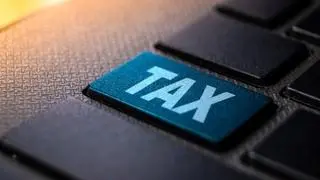The Lok Sabha, on Friday, cleared the Bill to end retrospective taxation. The Bill, which was introduced by Finance Minister Nirmala Sitharaman on Thursday, proposes to amend the Income Tax Act, 1961 and the Finance Act, 2012.
It provides that tax demands raised on the basis of the 2012 retrospective amendment for any indirect transfer of Indian assets, if the transaction was undertaken before May 28, 2012, shall be deemed never to have been passed or made. On May 28, 2012, the Finance Bill, 2012 got the President’s assent. It also envisages that no tax demand will be raised in future for transactions made before May 28, 2012 and the demand already raised will be ‘nullified’ with some conditions.
Before the Bill was passed by voice vote, Sitharaman said: “It was committed by the then Finance Minister, late Arun Jaitley. He had said in principle, we do not believe in this. We could not act in 2014 because two cases were going on and the then Finance Minister had clearly said we will wait for them to reach logical conclusion and logical conclusion was reached in September 2020 in one case and in December 2020 in other case.”
Voda, Cairn cases
Sitharaman said that those cases (Vodafone and Cairn) were studied and since this year’s Budget session was curtailed, a Bill could not be brought then.
“Now, we have come out with the Bill to keep the word given by the then Finance Minister, late Arun Jaitley under the leadership of PM Modi and keeping up commitment of BJP that we don’t believe in retrospective application of tax. We are fulfilling those words,” she said.
The Minister said there were 17 litigations due to the retrospective tax law and even the Supreme Court had said in 2012 that the tax could not be levied for the indirect transfer of shares of foreign companies.
“The Bill has been brought as a clarification,” she said.
Besides creating uncertainly in the minds of investors, the retrospective tax has, in recent months, been overturned by international arbitration tribunals in two high profile cases — the UK telecom giant Vodafone Group and oil producer Cairn Energy.
In the case of Cairn Energy, the arbitration tribunal had asked the Indian government to return the value of the shares it had seized and sold, the tax refund withheld and dividend confiscated to enforce the retrospective tax demand. With the government refusing to honour the award, Cairn Energy Plc approached a US court to seize the assets of Air India. It got an order from a French court to freeze 20 Indian properties in Paris to recover $1.2 billion, plus interest and penalties.








Comments
Comments have to be in English, and in full sentences. They cannot be abusive or personal. Please abide by our community guidelines for posting your comments.
We have migrated to a new commenting platform. If you are already a registered user of TheHindu Businessline and logged in, you may continue to engage with our articles. If you do not have an account please register and login to post comments. Users can access their older comments by logging into their accounts on Vuukle.